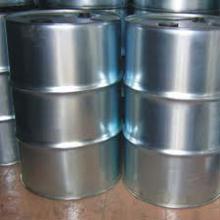Eucalyptus Oil
| Infobox on Eucalyptus Oil | |
|---|---|
| Example of Eucalyptus Oil |  |
| Facts | |
| Origin |
|
| Stowage factor (in m3/t) | 1,39 m3/t (drums) |
| Humidity / moisture | - |
| Ventilation | - |
| Risk factors | See text |
Eucalyptus Oil
Description
Eucalyptus oil is the generic name for distilled oil from the leaf of Eucalyptus, a genus of the plant family Myrtaceae native to Australia and cultivated worldwide. Eucalyptus oil has a history of wide application, as a pharmaceutical, antiseptic, repellent, flavouring, fragrance and industrial uses. The leaves of selected Eucalyptus species are steam distilled to extract eucalyptus oil.
The cineole-based oil is used as component in pharmaceutical preparations to relieve the symptoms of influenza and colds, in products like cough sweets, lozenges, ointments and inhalants. Eucalyptus oil has antibacterial effects on pathogenic bacteria in the respiratory tract. Inhaled eucalyptus oil vapor is a decongestant and treatment for bronchitis. Cineole controls airway mucus hypersecretion and asthma via anti-inflammatory cytokine inhibition. Eucalyptus oil also stimulates immune system response by effects on the phagocytic ability of human monocyte derived macrophages.
Eucalyptus oil also has anti-inflammatory and analgesic qualities as a topically applied liniment ingredient.
Eucalyptus oil is also used in personal hygiene products for antimicrobial properties in dental care and soaps. It can also be applied to wounds to prevent infection.
Cineole-based eucalyptus oil is used as an insect repellent and biopesticide.
Cineole-based eucalyptus oil is used as a flavouring at low levels (0.002%) in various products, including baked goods, confectionery, meat products and beverages. Eucalyptus oil has antimicrobial activity against a broad range of foodborne human pathogens and food spoilage microorganisms. Non-cineole peppermint gum, strawberry gum and lemon ironbark are also used as flavouring.
Eucalyptus oil is also used as a fragrance component to impart a fresh and clean aroma in soaps, detergents, lotions and perfumes.
Research shows that cineole-based eucalyptus oil (5% of mixture) prevents the separation problem with ethanol and petrol fuel blends. Eucalyptus oil also has a respectable octane rating and can be used as a fuel in its own right. However, production costs are currently too high for the oil to be economically viable as a fuel.
Phellandrene- and piperitone-based eucalyptus oils have been used in mining to separate sulfide minerals via flotation.
Shipment / Storage / Risk factors
Usually shipped in used drums in small quantities. Has a penetrating odour and the oil may render a container unfit for subsequent cargoes. The container floor must be sheathed in heavy duty plastic which stretches up the side panels and is taped in position.
Before packing into containers the packages should be carefully inspected for signs of leakage. Surface contaminated packages should be refused for shipment. When consolidating into containers with other cargo special attention should be paid to the susceptibility of other cargo. Eucalyptus oil can also be carried in tank containers or flexi-bags placed inside 20 ft GP containers. It is important that the correct bag material is selected as this oil attacks certain materials.
See also Essential Oils











